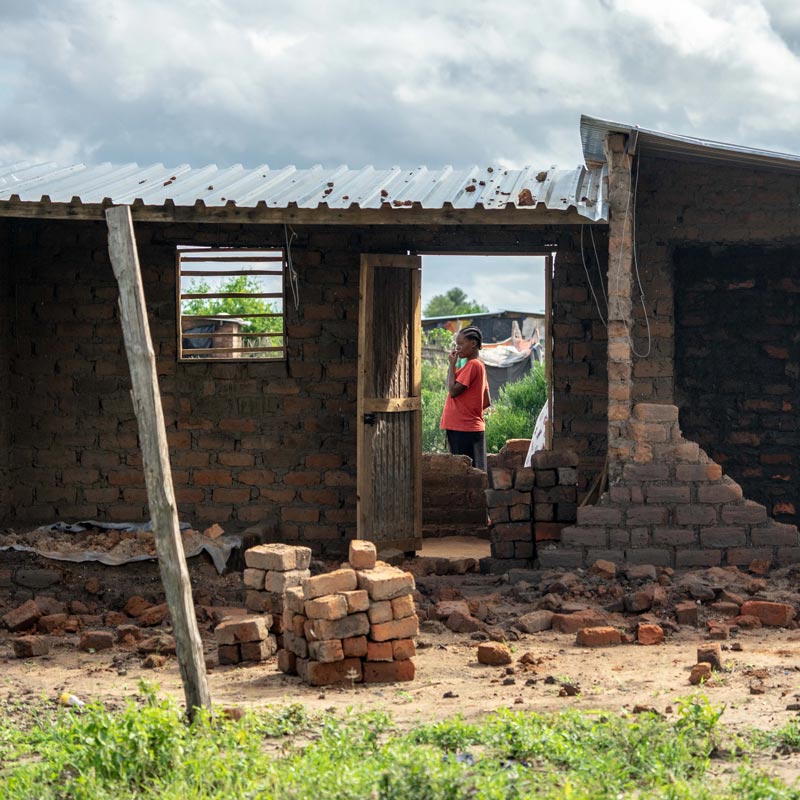Every person has the right to say
#IBELONG
Today millions of people around the world are denied a nationality. They often aren’t allowed to go to school, see a doctor, get a job, open a bank account, buy a house or even get married.
The #IBelong Campaign aims
to end statelessness in ten years.
Accelerating progress to end statelessness:
In case you missed the thematic stocktaking event,
you can watch the online recording.

A woman surveys the damage to one of the estimated 2000 homes damaged when Cyclone Idai hit Tongogara Refugee Camp in Chipinge district in south-east Zimbabwe. © UNHCR/Zinyange Auntony
NEW
Statelessness and Climate Change Factsheet
Millions of stateless people are denied a nationality and face considerable vulnerabilities in the context of climate change, including exclusion from disaster relief, healthcare and adaptation solutions. Climate change is a risk multiplier for displacement. The risks of statelessness can increase when people move, including during displacement situations in the context of climate change and disasters. Specific efforts are needed to reduce statelessness risks for displaced people and to include stateless persons in climate action to strengthen their protection and resilience.
August 30, 2021:
MARKING 60 YEARS
OF THE 1961 UN CONVENTION
ON THE REDUCTION OF STATELESSNESS
Latest developments
PLEDGES TO END STATELESSNESS
2019 High-Level Segment on Statelessness
Results and Highlights
What does it mean to be stateless?
FEATURE STORY
Over 1,500 displaced children receive birth certificates in Nigeria
About the #IBelong Campaign to End Statelessness
Launched in November 2014, the #IBelong Campaign aims to end statelessness within ten years, by identifying and protecting stateless people, resolving existing situations of statelessness and preventing the emergence of new cases. Through legal advocacy and awareness-raising, UNHCR works with governments and partners around the globe towards achieving the Campaign goals.
The #IBelong Campaign to End Statelessness directly advances the UN’s Sustainable Development Goal (SDG) 16.9: By 2030, provide legal identity for all, including birth registration. Ending statelessness also contributes to SDG targets relating to gender equality, education, work and health, among others.
Ensuring that no one is left behind is key to commitments made by all nations, to strive for peace and prosperity for people and the planet.
